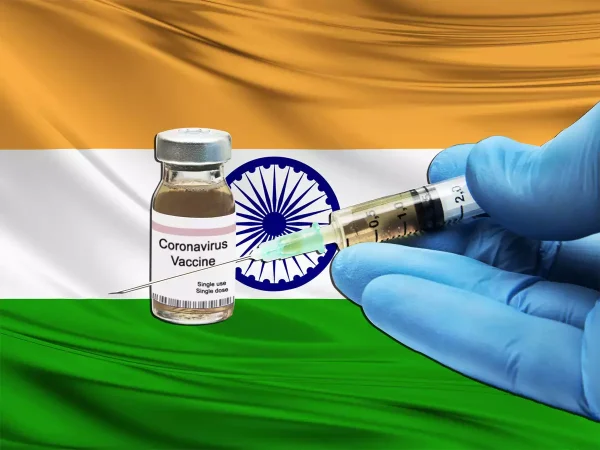New Delhi: India’s Covid-19 vaccination drive helped in saving more than 34 lakh lives and prevented a loss of USD 18.3 billion, a report by Stanford University said.
The working paper by Stanford University and Institute for Competitiveness titled ‘Healing the Economy: Estimating the Economic Impact on India’s Vaccination and Related Issues’ was released by Union Health Minister Mansukh Mandaviya on Friday (February 24, 2023). It highlighted the impact of the Covid-19 lockdown and referred to the Union Ministry of Health and Family Welfare’s statistical analysis that the coronavirus tally could have reached about two lakhs without the lockdown by April 11, 2020. However, due to lockdown measures, the actual infections only went up to about 7,500 by April 11, 2020. The imposition of the lockdown also avoided two million deaths, the report said.
The report further said that robust measures at the ground level, like contact tracing, mass testing, home quarantine, distribution of essential medical equipment, revamping healthcare infrastructure and constant coordination among stakeholders at the Centre, State and district levels not only helped contain the spread of coronavirus but also in augmenting the health infrastructure.
It said that three cornerstones of India’s strategy — containment, relief package and vaccine administration — were critical in saving lives and ensuring economic activity by containing the spread of Covid-19, sustaining livelihoods and developing immunity against the virus. The working paper further said that India was able to save more than 3.4 million lives by undertaking the nationwide vaccination campaign at an unprecedented scale. It said the vaccination campaign was always on saving lives. The campaign also yielded a positive economic impact by preventing the loss of USD 18.3 billion, it added.
Releasing the working paper, Mansukh Mandaviya said that India adopted a ‘Whole of Government’ and ‘Whole of Society’ approach, in a proactive, pre-emptive and graded manner.
“Much before Covid-19 was declared a public health emergency by World Health Organization (WHO) in Jan 2020, processes and structures to focus dedicatedly on various facets of pandemic management were put in place. India under the leadership of Prime Minister Narendra Modi adopted a ‘Whole of Government’ & ‘Whole of Society’ approach in a proactive, pre-emptive and graded manner thus adopting a holistic response strategy, for effective management of Covid-19,” he said.
Hailing the decision of early Covid-19 lockdown by PM Modi as a significant turning point, he alluded that it enabled the government to leverage community response in its five-pronged strategy to combat Covid-19 namely — Test, Track, Treat, Vaccination and Adherence — for implementing Covid Appropriate Behaviour (CAB) and delivering a rapid and robust institutional response.

















